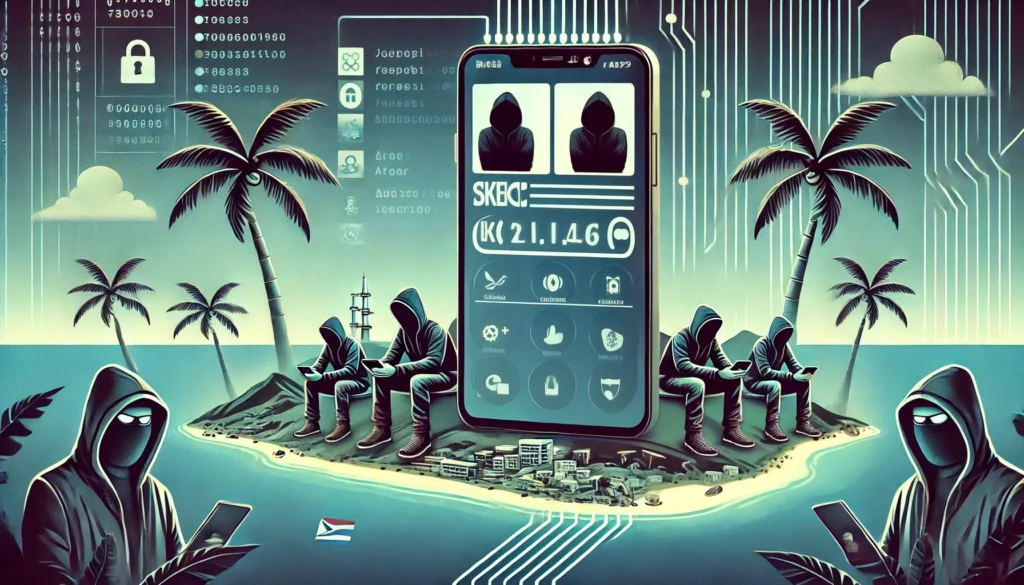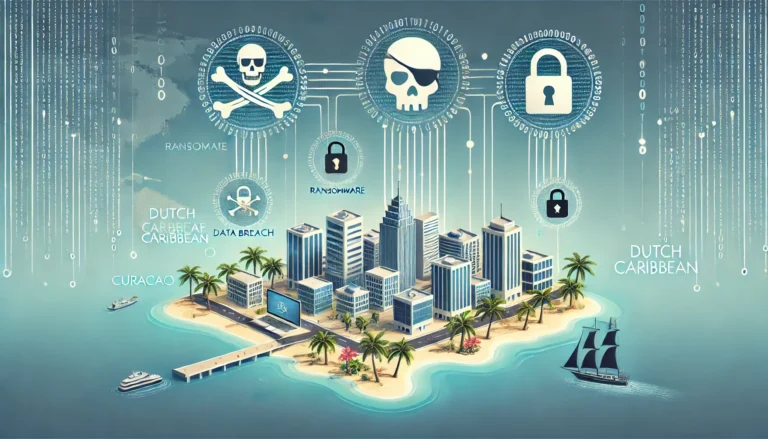
Organized crime in the Dutch Caribbean cyber world has changed dramatically. For decades, when people in Curaçao, Aruba, or Sint Maarten said organized crime, you pictured fast boats
hidden coves, and cash moved through front businesses. That picture hasn’t vanished — but it has a new layer. The same networks now add laptops, fake websites, and encrypted chat apps to their toolkit. In short: organized crime went cyber.
This isn’t just a global trend. It’s visible across the Caribbean, and the Dutch Caribbean sits squarely in the middle of it. A Commonwealth study mapped how local criminal groups have blended traditional offenses with online fraud, stolen-data markets, and crypto-based laundering — because it’s faster, cheaper, and often lower risk than moving contraband by sea.
Phishing is the easiest gateway. We’ve watched police teams and regulators around the islands warn residents about WhatsApp takeovers, QR-code scams, and fake bank sites. The Dutch Caribbean Police Force (KPCN) flagged malicious QR flyers on Bonaire; Bonaire.nu reported WhatsApp takeovers spreading via stolen codes; and the Centrale Bank of Curaçao & Sint Maarten has a long trail of alerts on forged bank pages and social-media “investment” scams. All of this is classic cybercrime — and all of it sits neatly beside the old business models. The Curaçao Chronicle even reported on fake investment videos circulating in the region.
Once criminals grab credentials, they don’t need to use them locally. Stolen logins, cards, and identities flow to dark-web markets where they’re traded in bulk. Research shows credit cards and accounts sell for just a few dollars, making phishing a low-cost, high-yield feeder for broader organized crime. That data may be collected in the Caribbean and monetized anywhere.
Why the shift? Two main reasons:
- Tooling got easy. Off-the-shelf phishing kits, “malware-as-a-service,” and cheap hosting lowered the barrier to entry. The Commonwealth paper calls out how “software-as-a-service” in the underground economy enables smaller regional actors to punch above their weight.
- Money moves differently. Crypto and online payment rails let cash slide across borders without the same friction as banks. The region’s AML ecosystem is maturing — see the CBCS MEVAL page and the CFATF — but criminals adapt quickly, combining old-school cash handling with virtual assets to launder proceeds from drugs and cyber fraud.
Organized crime in the Caribbean doesn’t just use crypto for money laundering — it’s also experimenting with crypto smuggling. Instead of hiding stacks of cash in boats or luggage, couriers now carry hardware wallets or seed phrases that represent millions of dollars in digital assets. A simple USB stick or even a memorized string of words can move value across borders undetected by customs. Once in a safe jurisdiction, the funds can be converted back into cash, invested, or laundered through businesses. Both the Financial Action Task Force (FATF) and Europol’s IOCTA report warn that criminal groups are adopting this technique, reducing the physical risks of bulk-cash smuggling while giving them new flexibility to move profits around the globe.

Why Cyber Threats in Caribbean Organized Crime Matter
The Dutch Caribbean is tightly wired into Dutch, EU, and U.S. financial and telecom systems. That’s an advantage for business — and a magnet for cyber-enabled crime. Local scams don’t stay local; they escalate to carding, travel fraud, and account-takeover loops elsewhere. That’s why you’re seeing more practical, non-ransomware warnings from police and regulators here: WhatsApp hijacks, QR tricks, fake “investment” videos, “support” calls, and cloned sites aren’t random — they’re inputs for organized crime’s digital revenue.
How to Stay Safe
- Pause on “urgent” messages. If your “bank” sends you a WhatsApp, stop. Go to the official app or site instead.
- Learn the signs of phishing. Watch the sender, hover over links, and spot typos.
- Lock down WhatsApp & email with 2FA. A hijacked account is a launchpad to scam your friends.
- Treat QR codes like links. Don’t scan if you didn’t request it.
- Be skeptical of crypto offers. Huge returns and requests to “just move money” are laundering in disguise.
- Share experiences. Cybercrime thrives on silence. Talk about scams with family and colleagues so they recognize the patterns too.
Sources
- Commonwealth Cybercrime Journal – Cybercrime & its links to organised crime in the Caribbean
- KPCN / Bonaire Insider – Police warn about malicious QR flyer
- Bonaire.nu – Politie waarschuwt voor WhatsApp take-over fraude
- Centrale Bank of Curaçao & Sint Maarten – Warning Notices
- Curaçao Chronicle – CBCS warns of fake investment videos on social media
- Comparitech – Dark web price index
- CBCS MEVAL
- CFATF – Caribbean Financial Action Task Force
- FATF – Virtual assets and money laundering
- Europol – Internet Organised Crime Threat Assessment (IOCTA) 2023




